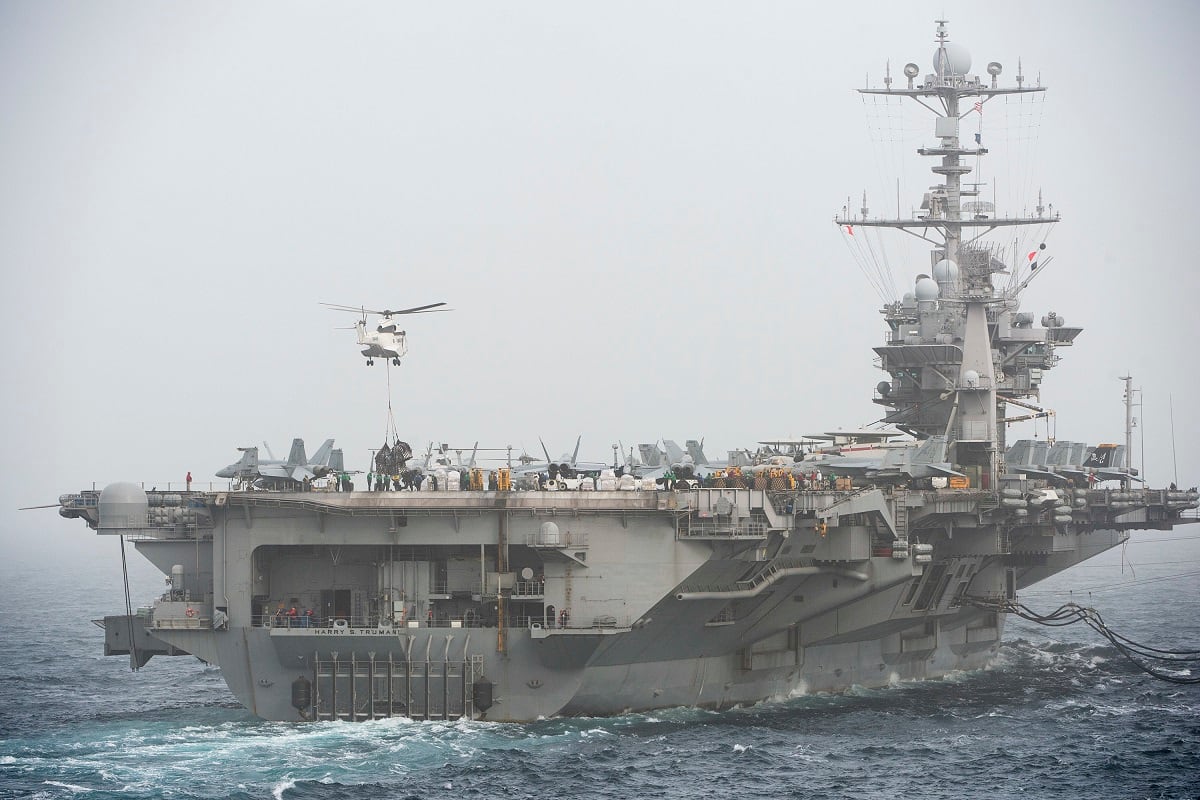BEIRUT — Even with two separate coalitions charged with ensuring maritime security in the Arabian Gulf region, the waterways are still proving unstable.
One coalition, Operation Sentinel based out of Bahrain, is led by the United States and includes the United Arab Emirates, Saudi Arabia, Bahrain, Qatar, Kuwait, Australia and the United Kingdom. The U.S. created the group as a means of ensuring “eyes on all shipping,” a senior U.S. State Department official said June 24, following attacks on oil tankers that the U.S. blamed on Iran, according to Reuters reports.
A second coalition, European-Led Coalition In The Strait Of Hormuz, is made up of European countries. EMASoH is based out of France’s naval base in Abu Dhabi, the capital of the UAE, and has the backing of Belgium, Denmark, France, Germany, Greece, Italy, the Netherlands and Portugal.
“When we read about the new maritime military alliance led by Washington to ensure Gulf security. We were very pleased, but the details of the naval mission showed strategic stupidity,” retired Kuwaiti Col. Zafer Alajmi told Defense News. “It stated publicly that the mission includes the Gulf waters, through the Strait of Hormuz, toward the Sea of Oman, and ends at Bab el-Mandeb Strait. How did the military plan to bypass the Red Sea, [which runs along] the western flank of the Gulf, when closure of the Bab el-Mandeb Strait or the Suez Canal means stopping the export of our oil to Europe and America?”
The military component of France’s maritime surveillance and security mission in the Strait of Hormuz was declared fully operational at the end of February. Alajmi called the engagement from the European naval initiative a “welcome” contrast to the doctrine of increasing burden-sharing coming from the U.S.
RELATED

But Bahraini strategic expert and political researcher Abdullah Al Junaid said that the coalitions can’t be considered in isolation, and that overall presence in the region factors into the security efforts of individual nations.
“It is necessary to separate the actual and moral members of the coalition,” he said. “The most significant [contribution comes from] the United States in terms of numerical combat logistics, followed by France and then Britain, in addition to the forces of the Saudi eastern fleet and the rest of the Arab Gulf states. Likewise, we should not forget the Japanese and South Korean navies joining efforts to guarantee the safety of navigation lines.”
It’s unlikely Asian nations will not join either coalition, but they might take unilateral action, as evidenced by Japan’s deployment of a warship and patrol planes to protect Japanese ships in the Middle East. A spokesman for the Japanese government said in December 2019 that the deployment is meant to counter volatility in the region, which provide 90 percent of the Asian nation’s crude oil imports.
Likewise, South Korea declared on Jan. 21 that it will send an independent contingent to the Middle East to help guard oil tankers amid rising regional tensions.
As for China, its military has a base in Djibouti on the Red Sea and its ships can access the Hormuz and Bab el-Mandeb straits.
The ultimate goal behind these coalitions is deterrence and containment, particularly targeted at Iran, said Al Junaid. But even with these two coalitions in the region, there are still unstable areas in the surrounding waterways. Al Junaid specifically pointed to Yemen, where a Saudi-led coalition fighting in the country said it had foiled an attack on an oil tanker off the coast, according to Saudi state news agency SPA.
“We must be aware of the fragility of the international economy in its current state, as well as what might be if Iran succeeds in dragging a regional or international party to a military confrontation,” Al Junaid said. “That is why the United States continues in its policy of maximum direct pressure and there is international sympathy for this strategy now.”
Meanwhile, Gulf Cooperation Council members have signed contracts to bolster their naval fleets. Saudi Arabia signed a $2 billion deal to procure four littoral combat ships from Lockheed Martin, adding them to its current fleet of 11 frigates, four corvettes and nine armed patrol ships.
The UAE signed a contract to procure two Gowind corvettes from Naval Group, and Qatar — under a $5 billion contract — has its first corvette from Fincantieri under construction. The Qatari government is also reportedly interested in buying submarines and aircraft carriers from the Italian company.
Agnes Helou was a Middle East correspondent for Defense News. Her interests include missile defense, cybersecurity, the interoperability of weapons systems and strategic issues in the Middle East and Gulf region.








